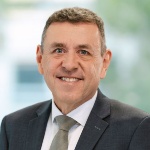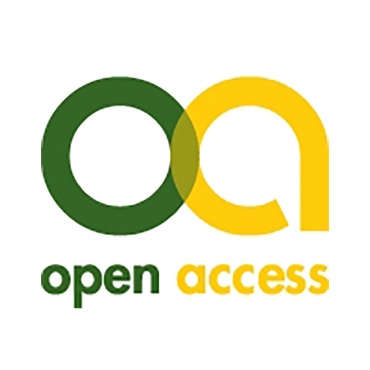
Open Science improves quality assurance and knowledge acquisition and leads to more reliable and comprehensible results. By fostering open communication, Open Science builds trust in scientific research, amplifies innovation potential, and improves the adaptability of research to societal changes.
Open Science in focus at the University of Stuttgart
[Images: o.A., o.A., Marcus Büsges, CC BY-SA]
Sharing knowledge: Making research accessible to all
Open Science enables society to actively participate in the creation and dissemination of knowledge. The University of Stuttgart's transfer strategy [de] therefore aims to ensure that findings from basic research are made available to society quickly and effectively.
Knowledge transfer
The University of Stuttgart offers a variety of activities aimed at sharing knowledge with the broader public, These include a children's university, guest student programs, podcasts, and numerous lecture series. The International Center for Cultural and Technological Studies (IZKT) plays a central role in the reciprocal transfer between the university and the public.
Real-World Laboratories
In the numerous real-world laboratories in which the University of Stuttgart is involved, civil society is directly involved in science through real-life experiments. The aim of these real-world laboratories is to initiate social change and find sustainable solutions.
Shaping knowledge: The university as an interface to the economy
The open communication of scientific findings to the general public also promotes technology transfer, which is a central concern for the University of Stuttgart.
TRACES Transfer Center
The TRACES transfer center bundles numerous activities in cooperation with the Institute for Entrepreneurship and Innovation Research (ENI) and the Technology Transfer Initiative (TTI GmbH) [de]. It serves as a contact point for members of the university as well as external individuals involved in business or society and offers support for spin-offs, career advice, establishing business relationships or technology scouting.
ARENA 2036
At the ARENA2036 research campus, various institutes at the University of Stuttgart are working with numerous external companies on innovative concepts in the field of mobility and production technology. ARENA 2036 also hosts STARTUP AUTOBAHN, a platform that facilitates and fosters connections between start-ups and leading technology companies.
Cyber Valley
The University of Stuttgart is a member of Cyber Valley, where various research institutions work together with industry partners to drive forward basic research and innovation development in the field of artificial intelligence.
Our commitment to responsible research assessment
Anchoring the integrity of scientific practice at the University of Stuttgart
Responsible research assessment places the quality of research in the foreground. Particular attention is paid to the variety of methods that contribute to the acquisition and dissemination of knowledge.
In 2023, the University of Stuttgart became the fifth university in Germany to sign the San Francisco Declaration on Research Assessment (DORA). The goal of alternative scientific evaluation is also anchored in the DFG Code of Good Scientific Practice, which the University of Stuttgart implements through its own regulations.
Improving transparency in science
A large number of Stuttgart scientists at the University of Stuttgart are involved in international networks and task forces.
As a member of the CESAER network, which is an association of European universities with predominantly natural science and engineering profiles, the University of Stuttgart is involved in the Openness of Science & Technology Task Force. The task force is currently co-chaired by Dr. Simone Rehm, Vice-Rector for Information Technology (CIO) at the University of Stuttgart
The University of Stuttgart is a member of the National Research Data Infrastructure (NFDI), which is funded by the federal and state governments and aims to make data from science and research available, network it and thus make it usable in the long term. Scientists from Stuttgart are involved in numerous NFDI consortia and are active in various NFDI sections.
Excellent conditions for research, studies and cooperation
You might also be interested in
[Images: ICD/ITKE/University of Stuttgart, HyEnD / University of Stuttgart]
Contact

Manfred Bischoff
Prof. Dr.Vice Rector for Research and Sustainable Development

Simone Rehm
Dr.Vice Rector for Information Technology (CIO)






